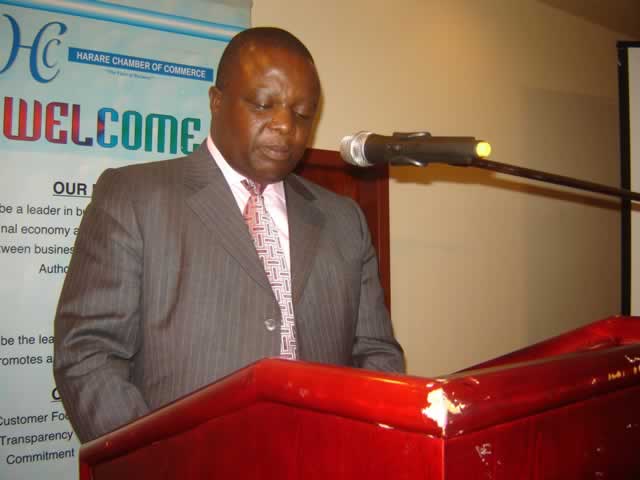
GOVERNMENT has to expedite the implementation of the special economic zones (SEZs) programme aimed at attracting foreign direct investment (FDI) and creating employment, business and analysts have said.
BY MTHANDAZO NYONI

In October last year, President Robert Mugabe signed into law the SEZs Bill, thereby paving the way for the implementation of the programme.
However, since the Bill was signed into law, there is still nothing concrete taking place on the ground.
An SEZ is an area where business and trade laws are different from the rest of the country. SEZs are located within a country’s national borders, and their aims include: increased trade, increased investment, job creation and effective administration.
The SEZ legislation prioritises agriculture, tourism, mining, services and manufacturing sectors.
Business and industry officials who spoke to Standardbusiness last week said government should swiftly implement the programme as the economy continued to deteriorate.
“Yes. We would like the pace of implementation to be swifter than you have seen up to now. It’s the potential that we are losing. It’s the new factories that could open if this Bill is implemented with greater speed,” Confederation of Zimbabwe Industries president Busisa Moyo said.
- Chamisa under fire over US$120K donation
- Mavhunga puts DeMbare into Chibuku quarterfinals
- Pension funds bet on Cabora Bassa oilfields
- Councils defy govt fire tender directive
Keep Reading
Moyo said industry was ready to take up opportunities under the programme in both new projects and expansion of current operations.
SEZs are seen as a magnet that would pull FDI which has been evading Zimbabwe over the years due to toxic legislation such as the Indigenisation and Empower Act which prescribes that foreign investors should not hold controlling shareholding.
In 2015, FDI declined to $421 million from $545 million in 2014, which was the highest since the economy embraced a multicurrency regime in 2009.
The SEZs are also expected to establish an appropriate regulatory and policy infrastructure to enable local and regional trade to flourish.
Zimbabwe National Chamber of Commerce president Davison Norupiri, said government should market the programme to attract investors.
“For now it’s [government] on the quiet side and there are very few people knowing about SEZs. There is need to market the programme to attract investors,” Norupiri said.
He said government should clearly state the benefits brought by the programme.
“We need more benefits because they are not clearly outlined. Let’s have huge tax discounts, rebates on duty on raw materials, among others. We need that to be pronounced,” he said.
An economic commentator, Reginald Shoko said industry should put more pressure on government to expedite the implementation of the programme. Shoko, however, said he believed that government and industry were not ready to implement the programme because of a number of reasons.
“Firstly, I think the entrepreneurs or businesspeople in the region are not capacitated for the opportunity. And what has the government done to promote the zones that is deliberate policy alignment beyond just signing it into law?” queried Shoko.
“As we talk, ZIA [Zimbabwe Investment Authority] has no board. They are the authority tasked with the processing and marketing investment opportunities in the country, and we call ourselves serious?” he said.
He said collective effort would kick-start the process of activating economic zones, adding business should be pro-active by demanding the speedy implementation of the law.
However, Desire Sibanda, Macro-Economic Planning and Investment Promotion permanent secretary, said everything was on course and there were no delays.
“The board that will see the running of SEZs will be announced soon. There is no delay because applications are being made while we are waiting for the finalisation of the board. We need to select professional people,” he said.
“[The] Chinese have started assisting government in the implementation of SEZs. There is no delay and everything is on course to see the implementation of SEZs. We believe that the appointment of the board will be done during the first quarter of the year,” Sibanda said.
Zimbabwe has touted SEZs as a key pillar in attracting FDI and creating employment.
Bulawayo, Victoria Falls, Harare’s Sunway City, Mutare and Lupane have been earmarked for the SEZ development.
In Bulawayo, SEZs entail construction of an industrial economic zone covering the beef to leather industry, cotton to textile industry, steel and foundry and the rehabilitation of the National Railways of Zimbabwe.
Zimbabwe set up Economic Processing Zones (EPZs) from 1996 to 2006, which were mainly export- oriented, with business required to export at least 80% of their production.
The EPZ programme resulted in 205 companies being established, generating an estimated $172 million worth of investment and creating 32 512 jobs and a cumulative $1,15 billion in export earnings.
Some of the companies are still operational despite the collapse of the scheme after government merged the Export Processing Zone authority and the Zimbabwe Investment Centre to form the ZIA.
Economists concurred that SEZs could boost Zimbabwe’s sluggish economic growth by increasing foreign investment, but that they needed to be developed diligently.











